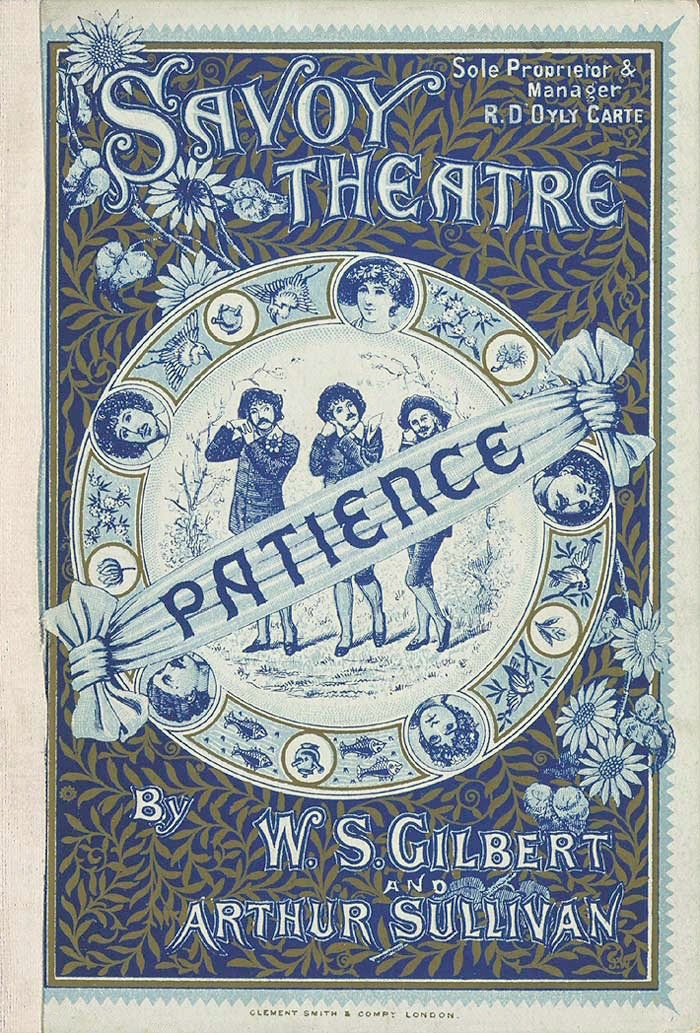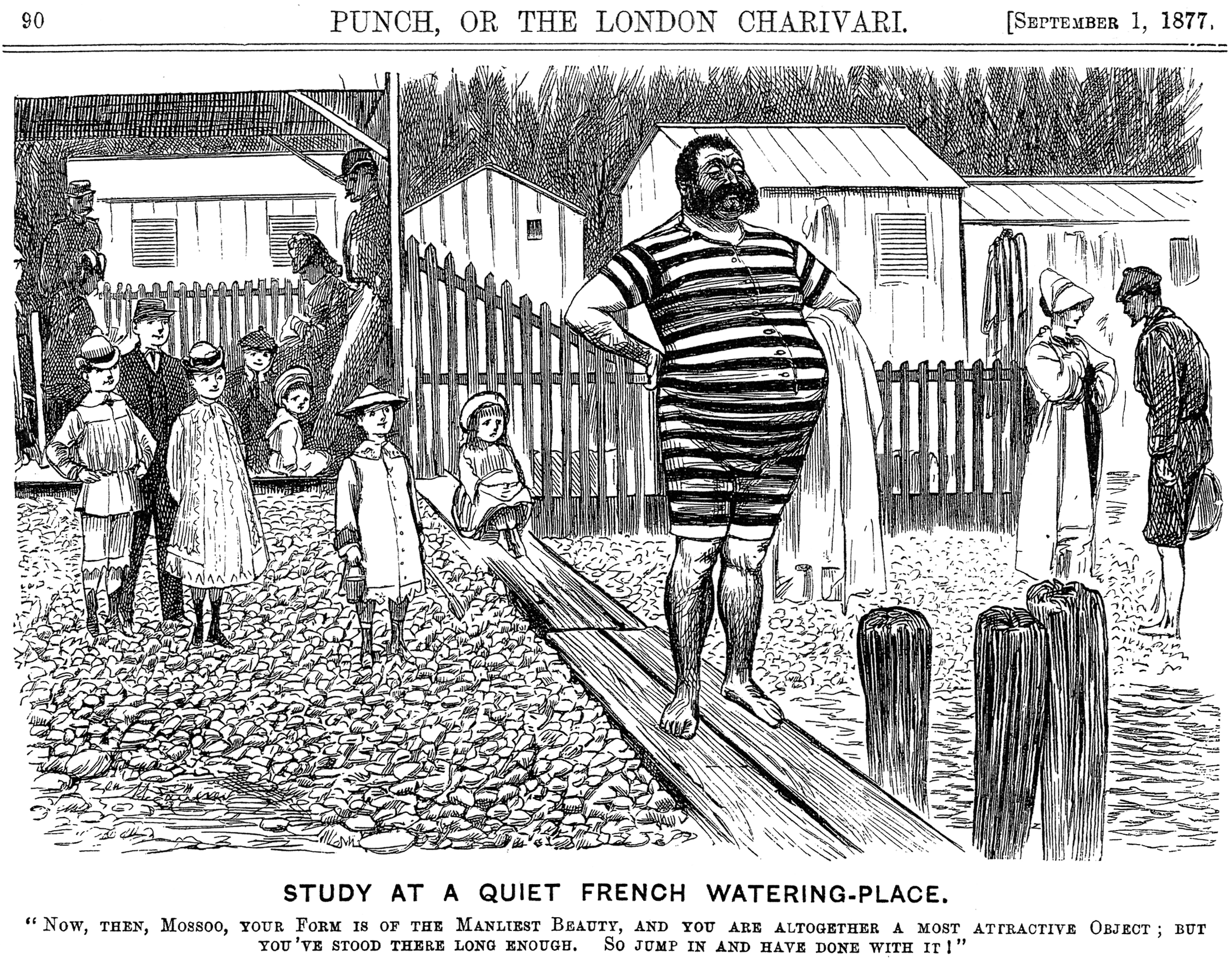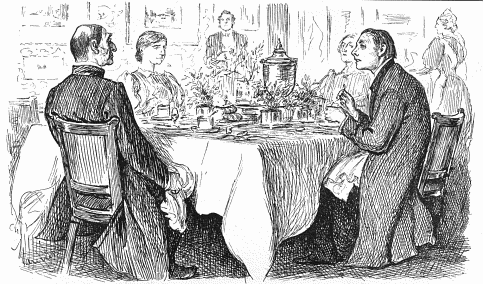|
The Colonel (play)
''The Colonel'' is a farce in three acts by F. C. Burnand based on Jean François Bayard's ''Le mari à la campagne'' (''The Husband in the Country''), first produced in 1844 and produced in London in 1849 by Morris Barnett, adapted as ''The Serious Family''. The story concerns the efforts of two aesthetic impostors to gain control of a family fortune by converting a man's wife and mother-in-law to follow aestheticism. He is so unhappy that he seeks the company of a widow in town. His friend, an American colonel, intervenes to persuade the wife to return to conventional behavior and obey her husband to restore domestic harmony, and the colonel marries the widow himself. ''The Colonel'' was first produced on 2 February 1881, and its initial run at the Prince of Wales's Theatre lasted for 550 performances, an extraordinary run in those days. Simultaneously, a second company was touring the British provinces with the play. On 4 October 1881, ''The Colonel'' received a command ... [...More Info...] [...Related Items...] OR: [Wikipedia] [Google] [Baidu] |
Punch - The Colonel 1
Punch commonly refers to: * Punch (combat), a strike made using the hand closed into a fist * Punch (drink), a wide assortment of drinks, non-alcoholic or alcoholic, generally containing fruit or fruit juice Punch may also refer to: Places * Punch, U.S. Virgin Islands * Poonch (other), often spelt as Punch, several places in India and Pakistan People * Punch (surname), a list of people with the name * Punch (nickname), a list of people with the nickname * Punch Masenamela (born 1986), South African footballer * Punch (rapper), 21st century American rapper Terrence Louis Henderson Jr. * Punch (singer), South Korean singer Bae Jin-young (born 1993) Arts, entertainment and media Fictional entities * Mr. Punch (also known as Pulcinella or Pulcinello), the principal puppet character in the traditional ''Punch and Judy'' puppet show * Mr. Punch, the masthead image and nominal editor of ''Punch'', largely borrowed from the puppet show * Mr. Punch, a fictional character in N ... [...More Info...] [...Related Items...] OR: [Wikipedia] [Google] [Baidu] |
Aestheticism
Aestheticism (also the Aesthetic movement) was an art movement in the late 19th century which privileged the aesthetic value of literature, music and the arts over their socio-political functions. According to Aestheticism, art should be produced to be beautiful, rather than to serve a moral, allegorical, or other didactic purpose, a sentiment exemplified by the slogan "art for art's sake." Aestheticism originated in 1860s England with a radical group of artists and designers, including William Morris and Dante Gabriel Rossetti. It flourished in the 1870s and 1880s, gaining prominence and the support of notable writers such as Walter Pater and Oscar Wilde. Aestheticism challenged the values of mainstream Victorian culture, as many Victorians believed that literature and art fulfilled important ethical roles. Writing in ''The Guardian'', Fiona McCarthy states that "the aesthetic movement stood in stark and sometimes shocking contrast to the crass materialism of Brit ... [...More Info...] [...Related Items...] OR: [Wikipedia] [Google] [Baidu] |
Leigh Murray
Henry Leigh Murray (1820–1870) was an English actor. Early life Murray was born in Sloane Street, London, 19 October 1820, with the surname Wilson. While a clerk in a merchant's office he made a start on amateur acting, in a small theatre in Catherine Street, Strand, his first appearance being about 1838 as Buckingham in ''King Richard III''. Other Shakespearean parts followed, and on 2 December 1839, under Hooper, manager of the York circuit, he made his professional debut at Kingston upon Hull, playing Ludovico in ''Othello''. On 17 September 1840, as Leigh (perhaps to avoid confusion with his manager) he appeared at the Adelphi Theatre, Edinburgh, under William Henry Murray, as Lieutenant Morton in ''The Middy Ashore'' by William Bayle Bernard. Occasionally visiting other Scottish towns, he remained in Edinburgh, at the Theatre Royal or the Adelphi, till the spring of 1845. Among the characters he played were Dr. Caius, Jan Dousterswyvel in ''The Lost Ship'' by William Tho ... [...More Info...] [...Related Items...] OR: [Wikipedia] [Google] [Baidu] |
Charles Francis Coghlan
Charles Francis Coghlan (11 June 1842 – 27 November 1899) was an Anglo-Irish actor and playwright once popular on both sides of the Atlantic Ocean. Early life Charles F. Coghlan was born on 11 June 1842, in Paris, France to British subjects, Francis (sometimes spelled Frances) and Amie Marie (née Ruhly) Coghlan. His father, a native of Dublin, Ireland, was the founder of Coghlan's Continental Dispatch and publisher of Coghlan's Continental Guides, and counted among his friends, Charles Dickens, Charles Reade, and other literary figures of the day. Amie Coghlan was born on the English Channel Island of Jersey sometime around 1821. Charles Coghlan was later raised in Peterborough, Cambridgeshire and Hull, Yorkshire and though originally groomed for a career in law he had chosen instead to be an actor whilst still in his teens.Charles Coghlan is Dead - New York Times 28 November 1899; pg. 7; Career Charles Coghlan began his stage career in 1859 as a minor player with the S ... [...More Info...] [...Related Items...] OR: [Wikipedia] [Google] [Baidu] |
Punch - The Colonel 2
Punch commonly refers to: * Punch (combat), a strike made using the hand closed into a fist * Punch (drink), a wide assortment of drinks, non-alcoholic or alcoholic, generally containing fruit or fruit juice Punch may also refer to: Places * Punch, U.S. Virgin Islands * Poonch (other), often spelt as Punch, several places in India and Pakistan People * Punch (surname), a list of people with the name * Punch (nickname), a list of people with the nickname * Punch Masenamela (born 1986), South African footballer * Punch (rapper), 21st century American rapper Terrence Louis Henderson Jr. * Punch (singer), South Korean singer Bae Jin-young (born 1993) Arts, entertainment and media Fictional entities * Mr. Punch (also known as Pulcinella or Pulcinello), the principal puppet character in the traditional ''Punch and Judy'' puppet show * Mr. Punch, the masthead image and nominal editor of ''Punch'', largely borrowed from the puppet show * Mr. Punch, a fictional character in N ... [...More Info...] [...Related Items...] OR: [Wikipedia] [Google] [Baidu] |
Victorian Burlesque
Victorian burlesque, sometimes known as travesty or extravaganza, is a genre of theatrical entertainment that was popular in Victorian England and in the New York theatre of the mid-19th century. It is a form of parody in which a well-known opera or piece of classical theatre or ballet is adapted into a broad comic play, usually a musical play, usually risqué in style, mocking the theatrical and musical conventions and styles of the original work, and often quoting or pastiching text or music from the original work. Victorian burlesque is one of several forms of burlesque. Like ballad opera, burlesques featured musical scores drawing on a wide range of music, from popular contemporary songs to operatic arias, although later burlesques, from the 1880s, sometimes featured original scores. Dance played an important part, and great attention was paid to the staging, costumes and other spectacular elements of stagecraft, as many of the pieces were staged as extravaganzas. Many of ... [...More Info...] [...Related Items...] OR: [Wikipedia] [Google] [Baidu] |
Patience (opera)
''Patience; or, Bunthorne's Bride'', is a comic opera in two acts with music by Arthur Sullivan and libretto by W. S. Gilbert. The opera is a satire on the aesthetic movement of the 1870s and '80s in England and, more broadly, on fads, superficiality, vanity, hypocrisy and pretentiousness; it also satirises romantic love, rural simplicity and military bluster. First performed at the Opera Comique, London, on 23 April 1881, ''Patience'' moved to the 1,292-seat Savoy Theatre on 10 October 1881, where it was the first theatrical production in the world to be lit entirely by electric light. Henceforth, the Gilbert and Sullivan comic operas would be known as the Savoy Operas, and both fans and performers of Gilbert and Sullivan would come to be known as "Savoyards." ''Patience'' was the sixth operatic collaboration of fourteen between Gilbert and Sullivan. It ran for a total of 578 performances, which was seven more than the authors' earlier work, '' H.M.S. Pinafore'', and the ... [...More Info...] [...Related Items...] OR: [Wikipedia] [Google] [Baidu] |
Gilbert And Sullivan
Gilbert and Sullivan was a Victorian-era theatrical partnership of the dramatist W. S. Gilbert (1836–1911) and the composer Arthur Sullivan (1842–1900), who jointly created fourteen comic operas between 1871 and 1896, of which '' H.M.S. Pinafore'', '' The Pirates of Penzance'' and '' The Mikado'' are among the best known.Davis, Peter G''Smooth Sailing'' ''New York'' magazine, 21 January 2002, accessed 6 November 2007 Gilbert, who wrote the libretti for these operas, created fanciful "topsy-turvy" worlds where each absurdity is taken to its logical conclusion; fairies rub elbows with British lords, flirting is a capital offence, gondoliers ascend to the monarchy, and pirates emerge as noblemen who have gone astray. Leigh, Mike"True anarchists" ''The Guardian'', 4 November 2007, accessed 6 November 2007 Sullivan, six years Gilbert's junior, composed the music, contributing memorable melodies that could convey both humour and pathos. Their operas have enjoyed broad and end ... [...More Info...] [...Related Items...] OR: [Wikipedia] [Google] [Baidu] |
Frederic Clay
Frederic Emes Clay (3 August 1838 – 24 November 1889) was an English composer known principally for songs and his music written for the stage. Although from a musical family, for 16 years Clay made his living as a civil servant in HM Treasury, composing in his spare time, until a legacy in 1873 enabled him to become a full-time composer. He had his first big stage success with ''Ages Ago'' (1869), a short comic opera with a libretto by W. S. Gilbert, for the small Gallery of Illustration; it ran well and was repeatedly revived. Clay, a great friend of his fellow composer Arthur Sullivan, introduced the latter to Gilbert, leading to the Gilbert and Sullivan partnership. In addition to Gilbert, Clay's librettists during his 24-year career included B. C. Stephenson, Tom Taylor, T. W. Robertson, Robert Reece and G. R. Sims. The last of his four pieces with Gilbert was '' Princess Toto'' (1875), which had short runs in the West End and in New York. Clay's other compositions inclu ... [...More Info...] [...Related Items...] OR: [Wikipedia] [Google] [Baidu] |
Fun (magazine)
''Fun'' was a Victorian era, Victorian weekly humorous magazine, first published on 21 September 1861 in competition with ''Punch (magazine), Punch''. The magazine's first editors were H. J. Byron and Tom Hood. They had many well-known contributors, including Thomas William Robertson, Tom Robertson, Ambrose Bierce, G. R. Sims and Clement Scott but the most important contributor to its success in its first decade was W. S. Gilbert, whose Bab Ballads were almost all first published in ''Fun'' between 1861 and 1871, along with a wide range of his articles, drawings and other verses. At a Penny (British pre-decimal coin), penny an issue ''Fun'' undercut its rival, ''Punch'', and prospered into the 1870s, after which it suffered a gradual decline. It passed through various ownerships under different editors, and ceased publication in 1901, when it was absorbed into a rival comic magazine, ''Sketchy Bits''. History Early years ''Fun'' was founded in 1861 by a London businessman, Char ... [...More Info...] [...Related Items...] OR: [Wikipedia] [Google] [Baidu] |
George Du Maurier
George Louis Palmella Busson du Maurier (6 March 1834 – 8 October 1896) was a Franco-British cartoonist and writer known for work in ''Punch'' and a Gothic novel ''Trilby'', featuring the character Svengali. His son was the actor Sir Gerald du Maurier. The writers Angela du Maurier and Dame Daphne du Maurier and the artist Jeanne du Maurier were all granddaughters of George. He was also father of Sylvia Llewelyn Davies and grandfather of the five boys who inspired J. M. Barrie's ''Peter Pan''. Early life George du Maurier was born in Paris, France, son of Louis-Mathurin Busson du Maurier and wife Ellen Clarke, daughter of the Regency courtesan Mary Anne Clarke. He was brought up to believe his aristocratic grandparents had fled from France during the Revolution, leaving vast estates behind, to live in England as émigrés. In fact, du Maurier's grandfather, Robert-Mathurin Busson, was a tradesman who left Paris, France, in 1789 to avoid charges of fraud and later change ... [...More Info...] [...Related Items...] OR: [Wikipedia] [Google] [Baidu] |
Punch (magazine)
''Punch, or The London Charivari'' was a British weekly magazine of humour and satire established in 1841 by Henry Mayhew and wood-engraver Ebenezer Landells. Historically, it was most influential in the 1840s and 1850s, when it helped to coin the term " cartoon" in its modern sense as a humorous illustration. From 1850, John Tenniel was the chief cartoon artist at the magazine for over 50 years. After the 1940s, when its circulation peaked, it went into a long decline, closing in 1992. It was revived in 1996, but closed again in 2002. History ''Punch'' was founded on 17 July 1841 by Henry Mayhew and wood-engraver Ebenezer Landells, on an initial investment of £25. It was jointly edited by Mayhew and Mark Lemon. It was subtitled ''The London Charivari'' in homage to Charles Philipon's French satirical humour magazine '' Le Charivari''. Reflecting their satiric and humorous intent, the two editors took for their name and masthead the anarchic glove puppet, Mr. Punch, o ... [...More Info...] [...Related Items...] OR: [Wikipedia] [Google] [Baidu] |





.jpg)

